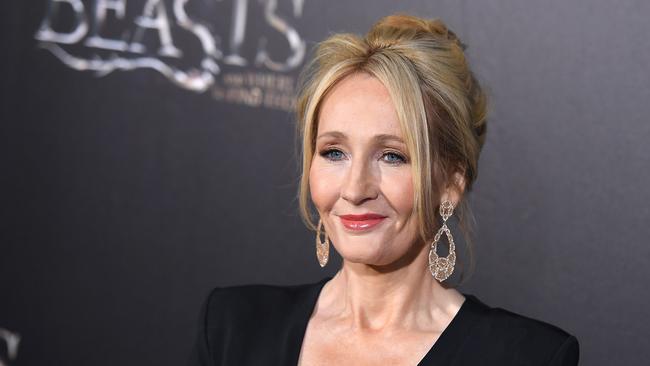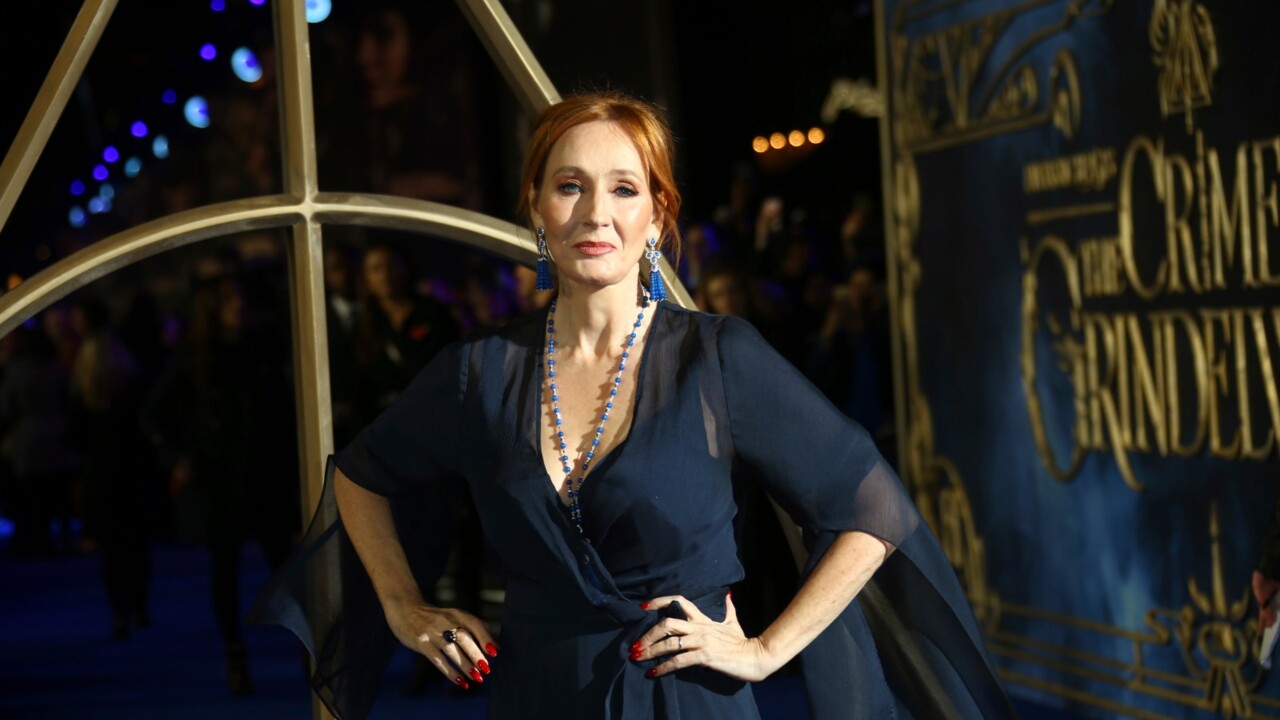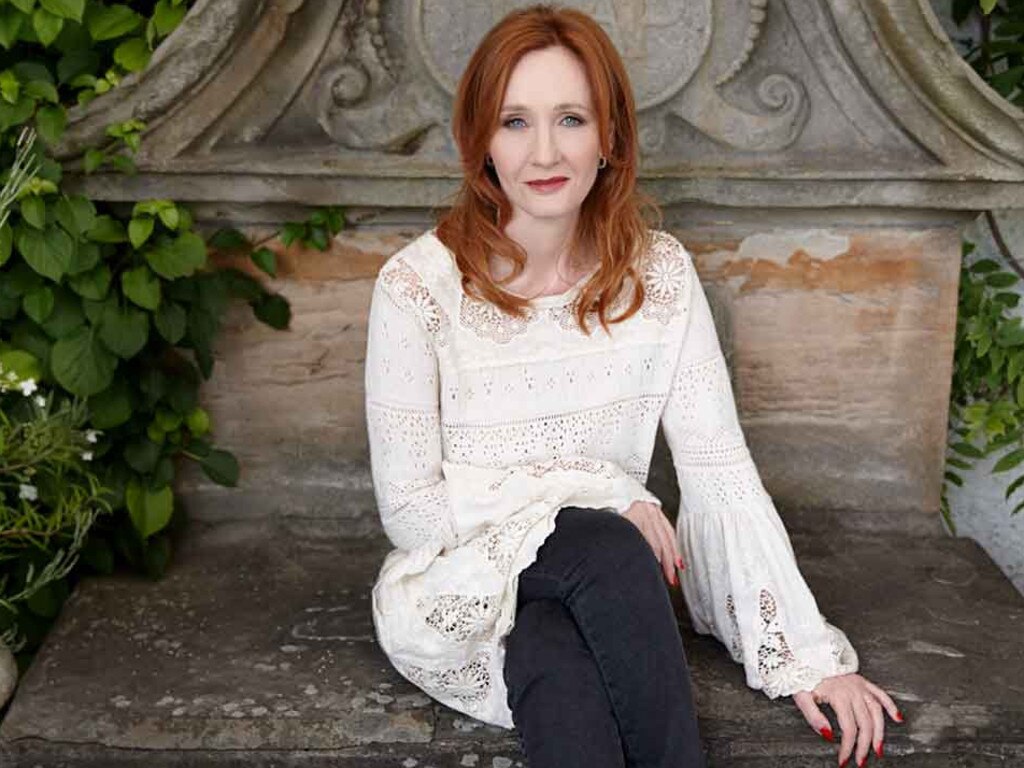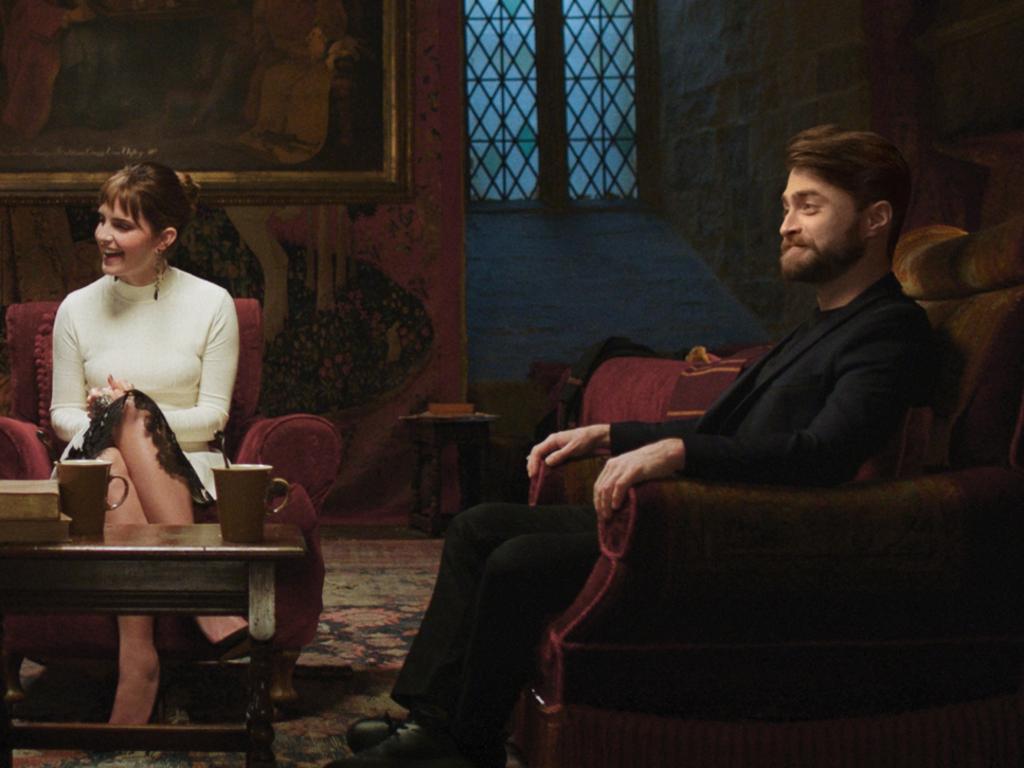
Recently, some noticed that the shop no longer stocked Harry Potter books on its shelves. Some wondered whether the bookshop might have quietly joined other bookshops that have shunned JK Rowling by removing her books or “phasing them out”, as one store in Western Australia put it.
It turned out the bookshop had Potter books on order. But it was an easy assumption given the hardening pattern of siding with trans activists and censoring Rowling’s books after she stepped, sometimes clumsily, other times more thoughtfully, into the trip-wired terrain of sex and biology.
The famous author discovered, amid death threats and tonnes of online hatred, that we can’t talk sensibly about, let alone defend, what it is to be a biological woman.
There is no need to name bookstores that have pulled Rowling from their shelves. Naming and shaming is for the vengeful and the shallow. It’s a free country, and a bookshop owner is entitled to stock or not stock whatever books they want.
Also, it’s unlikely that a decision not to stock books that have sold an estimated 500 million copies worldwide, have been translated into 80 languages, making the Potter series the best-selling book series in history, will be reversed by a plea for reason.
More likely, emotion has led them to a moral reckoning that focuses solely on Rowling’s personal views, making no room for the power of her art or the magnificent contribution she has made since her first book, Harry Potter and the Philosopher’s Stone, was published in 1997.

If you’re also tempted to discard the Potter books because you disagree with Rowling’s views about biology and sex, why not draw up a proper balance sheet? Her personal views sit on the costs side of your ledger. And on the other side, even a curmudgeonly minded person will note that this woman has done more to enrich the lives of children than most of us ever will.
Millions of parents know this. Especially if you have kids who grew up as these magical books hit the shelves.
My daughters raced to our local bookshop as soon as they were old enough to read. They learned to read early because Rowling enticed them to do that. Listening to a parent read the Potter books is one thing. Reading them alone is empowering. So the girls sat alone, reading these books for hours, making all sorts of noises, giggles, groans, gasps of wonder, as they followed the dramas unfolding on the page. Then they chatted between themselves, faces alight as they recounted the lines of even minor characters such as Moaning Myrtle and the doe-eyed house-elf Dobby.
The girls, now women, have re-read Rowling’s books so many times they have lost count, devouring the audio versions too, where Rowling’s words, mixed with Stephen Fry’s voice, bring a new form of magic all over again.
If you can’t write like Rowling, imagine being part of one of the finest projects there is as a bookseller or parent or educator – encouraging kids to love reading. Not just any books but intelligent ones, beautifully written ones, books that broaden a kid’s vocabulary and transport them to places where their imaginations can run riot, free from helicopter parenting and other incursions wrought by well-meaning modernity. Books that make them laugh and cry and think. Books about friendship, death, magic and adventure. Books where curious kids such as Harry, Hermione and Ron invite the reader to be curious and, God forbid, to take risks. Books that lead kids to read even bigger books, because if you can manage Harry Potter novels at the age of six or seven, you will have the confidence to pick up any book.
If I were a bookseller, I would feel duty-bound, and privileged, to know that I could offer that wonder to a new generation of children. If the author happens to say some things I disagree with, then quibble privately, even publicly. But denying these books to children because of a spat with an author over matters entirely unrelated to the words in her books is, frankly, petty.
If we dig enough, we can find plenty of reasons to dislike authors and artists. As others have pointed out, Pablo Picasso treated women badly, Caravaggio was a murderer and Richard Wagner was an anti-Semite.

We separate art from artist because art has merit and meaning distinct from the character and deeds of the artist. That is changing. More people, especially among the young, seem drawn to a modern-day puritanism where long-established principles, no matter how sound, are discarded when they interfere with how they practise their puritanism. Overzealous #MeToo activists ditch the presumption of innocence and due process. Trans activists and their supporters believe Rowling’s personal views cancel out her decades-long contribution as a writer.
It’s easy to get ensnared in the divide caused by this modern and very secular puritanism. When news broke that Rowling would not be part of the Binge-streamed 20th anniversary reunion of the first Harry Potter film last weekend, people tended to one of two responses.
Some said it was only right to shun Rowling given her defence of female biology. They were led into this moralising bunker by the three child stars of the Potter films – Emma Watson, Daniel Radcliffe and Rupert Grint – who all sided with the trans movement and pointedly abandoned Rowling. Actors who have made careers and mountains of money from Rowling’s stories proved themselves incapable of conducting a proper audit of Rowling’s contributions, let alone of the values inherent in a democracy.
Remember that Rowling has not been accused of heinous crimes, merely holding views about female biology that millions of people agree with.
While Radcliffe pointed out that “it’s very easy to forget that at the time, people were talking about the death of reading”, it took an adult in the room, Robbie Coltrane, the gentle giant who played Hagrid, to pay Rowling the respect she deserves.
“One of the many reasons I admire JK so much is that millions now read books who would never have lifted a book up in their lives, and you suddenly realise the power of writing,” Coltrane said.
Maybe that explains the outrage that Rowling was left out of the Harry Potter 20th Anniversary: Return to Hogwarts reunion. But the outraged also jumped the gun. Team Rowling apparently has let it be known that the author was invited to be part of the reunion but declined, deciding that archival footage of her was enough.
Perhaps Rowling is simply fed up with knee-jerk reactions about her and her views. Maybe, when it comes to Harry Potter, she is happy to let her books do the talking. If only more people would do the same.








There is a sweet little bookshop in a country town in NSW. It’s a town with a handful of homeware shops, near on 10 churches and about the same number of pubs. But for too long not a single bookstore unless you counted one selling only Christian books. When a bookshop opened a few years ago, it became a terrific boon for kids and adults to browse among and buy good books.